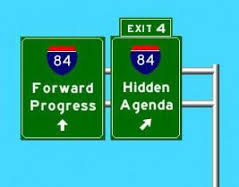
“Men are more accountable for their motives than anything else. – Archibald Alexander
Bob Kuechenberg, the former Miami Dolphin great, once explained what motivated him to go to college.
“My father and uncle were human cannonballs in Carnivals,” he explained. “My father told me, “go to college or be a cannonball.” Then one day my uncle came out of the cannon, missed the net and hit the Ferris wheel. I decided to go to college.” To be sure, Bob Kuechenberg was motivated to go college and relinquish his future as a human cannonball.
In various ways, as children, we were motivated to get good grades in school or to do our chores. It often had monetary motivations attached to it. As adults, we have our motivations to perform well in our places of employment. We have the opportunity to move up based upon performance and other matrix and we are rewarded with the compensation that comes with it. Simply put, we all have our motivational tipping points.
You have heard the old expression, “check your ego at the door”. It’s sound advice for anyone in leadership. An unbridled ego can create a host of problems for a leader if left unchecked.
In as much as an unchecked ego can cause many problems, so too, can unchecked motives. A leader must be honest and come clean about overt or hidden motives that drive behaviors and actions. Before proceeding with your agenda, why not run them through a filter that will help you determine if your motives are pure. Here are six questions that will help you.
Would I support my plan or idea with the same level of intensity if the idea wasn’t coming from me?
This question is foundational and fundamental. An honest answer will shed light on the real motives you have. It’s not about who wins, it’s about the best idea winning. This is Leadership 101. Until you understand this, your hidden motives will always get the best of you.
Am I out to advance my own agenda and career or advance the good of the organization?
This is typically one of the driving forces behind hidden motives. When you seek the advancement of your own career and ambitions over the good of the organization then what is the real value of your service there? But when your commitment is to the good of the organization, good things will come your way. It all starts with your motives.
Am I territorial, making decisions that benefit me or my department over the good of the organization?
Leaders with wrong motives are all about making decisions that only benefit them or their department. Instead of looking at what is best for the whole team, they stake out their territory which leads to isolation and erodes trust. You will shine brightly as a leader when you are looking out for the best interest of everyone, not just a select few.
Am I guarded and reluctant to help others, or do I gladly share ideas and offer my assistance?
Your motives may be wrong if you are unwilling to help others for fear that they may outshine you, or get credit for something you shared with them. These motives are rooted in jealousy and insecurity and can openly expose your motives for not being a team player. A strong leader will gladly come alongside and help his or her teammates. It’s when you see yourself as colleagues not as competitors that you will have peak performance.
Am I manipulative, overbearing, and drive organizational politics in my favor, or am I a team player looking out for the best interest of everyone?
A leader with hidden motives can come across as overbearing or as a manipulator through office politics. They use this to further their agenda- be it career advancement or something else, they are master manipulators. A leader with nothing to hide is looking out for everyone and the good of the team. In the long run, people do not rally around a manipulator, but they will always respond to a leader who has their best interest at heart
Am I presenting myself one way in public, and another way in private?
Ultimately, this is where your hidden motives and agendas will catch up with you. It’s just a matter of time. Who you are will eventually come to light.
Here’s the rub – will all have our motives for doing what we do. Sometimes those motives are not very flattering while at other times they are good. The mark of your maturity as a leader and as a person is defined by constantly evaluating them, being honest with yourself, and only proceeding when you know they are in alignment with your core values.
What do your motives say about your leadership?
© 2017 Doug Dickerson

